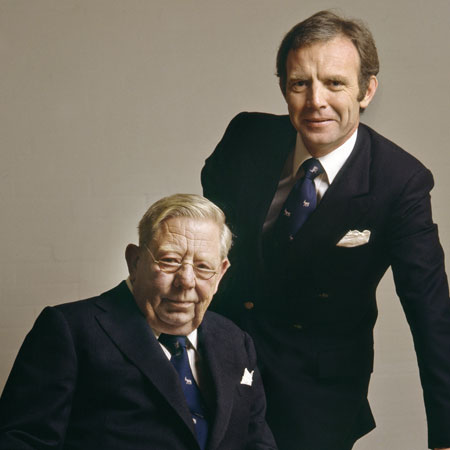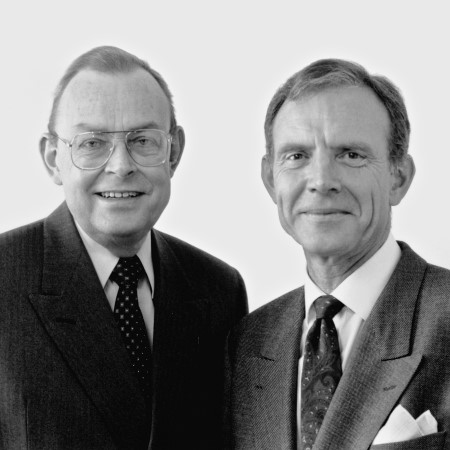Lessons From Novo Nordisk’s Mads Øvlisen, The Father Of CSR
Executive Summary
When Mads Øvlisen was persuaded by his father-in-law to join the family business, Novo Industri, in 1974 for a short stint in the legal department, little did he know it would the beginning of a lifetime of service to the company that he helped to shape into the diabetes powerhouse it is today.
Novo Nordisk A/S has appointed five CEOs in almost 100 years. It is testament to the culture in the previously family-run company that leaders have the freedom to bring their unique form of guidance and management to the Danish diabetes specialist.
The firm is understandably proud if its culture. The values passed down from its founders of honesty, ambition, accountability, and openness define the way it treats its staff, how staff treat one another, and how it innovates. While it is from the company founders that these values emanate, it is Mads Øvlisen, the company’s third CEO, who is best known for articulating the founders’ principles into a deep-rooted set of guiding principles such as Values in Action, and the Novo Nordisk Way, a lived version of those ethics that underpin company decisions.
“I always interview our new colleagues and ask what their first impressions are of the company. There are always some comments about our culture. The way we work together, the respect we show to each other, and for that I'm incredibly thankful of Mads for having written down these principles into a set of core values,” Lars Fruergaard Jørgensen, Novo Nordisk’s current CEO, told In Vivo.
Duty And Obligation
If a conversation with Øvlisen were a word cloud, duty and obligation would be writ large. This sense of giving back is not only a Nordic-influenced concept, but also deeply held in the heritage of Novo Nordisk. Harald and Thorvald Pedersen established the Novo Foundation in 1951 to secure the foundation of the company, but also to the many employees who had tied their destiny to Novo. “They felt that ownership did not equate to leadership, or vice versa,” Øvlisen explained to In Vivo. He felt a responsibility to lead the company with this sentiment in mind. “My father-in-law [Novo Industri’s second CEO, Knud Hallas-Møller] always said, ‘Where is it written that you can start your own company and use society's talent, resources, infrastructure, to your own good? Don't you have an obligation to pay back?’
“I could only agree with that because I would not have gotten anywhere if it had not been for teachers and parents that believed in me, and gave me choices, for sending me to the US for school. You realize that you're a part of something bigger, and that you have an obligation that goes way beyond yourself. So therefore, paying back is critically important,” he explained.
Mads Øvlisen had a “normal upbringing.” Born in 1940, the son of a father who worked in a lumberyard, and a mother that stayed at home with him and his two siblings in their Copenhagen apartment, Øvlisen found a passion for languages in his formative years. In high school he received a scholarship to study in Cedars Rapids, Iowa, an “incredible experience”, he recalls, that made him determined to work internationally. Languages fell by the wayside and Øvlisen instead picked up his law books.
Denmark’s egalitarian society has meant a lot to Øvlisen, he explained. His friends from school are still his friends now, even though he was “suddenly a CEO.” It also influenced his management style. The Nordic concept of stakeholders, whereby an inclusive society is a source of success, has “been very significant in the way we tried to run our company.”
Upon leaving Copenhagen University Øvlisen applied to business school in the US “partly for education and partly for an ego trip.” Swayed by the palm trees outside the library, he moved his wife, Lise Hallas-Møller, and young daughter Annemette to California to attend Stanford University in 1970. In 1972, upon graduating with an MBA from Stanford, Øvlisen did the thing he swore he would never do, and joined his father-in-law’s firm, Novo Industri.
 Mads Øvlisen and father-in-law Knud Hallas-Møller
Novo Nordisk
Mads Øvlisen and father-in-law Knud Hallas-Møller
Novo Nordisk
“I wanted to prove I could do it on my own,” said Øvlisen. “It was vanity, I wanted to fend for myself.” However, his father-in-law persuaded him to join the firm on a temporary basis. “He wrote me a letter, stating that Novo was considering an IPO. The company needed somebody to work together with the company and with the family, and since I had legal background, some finance experience and knew the family, they thought I might be the one who could get shares away from the family and into the public,” he explained.
Hallas-Møller, CEO from 1961-1981, had restructured the company to cope with growing sales of Lente insulins. This had created a product-oriented organization that generated further growth for Novo in the ensuing decades. In 1974, this culminated in the introduction of Novo Industri’s B shares on the Copenhagen Stock Exchange. As secretary to the Board of Directors, it was Øvlisen’s job to facilitate the public offering by going through the company structure. A one-year job turned into a lifetime of service to the company. Øvlisen became chief counsel and then CEO from 1981 to 2000, remaining as chairman of the board until 2006.
“In my early days, the issue of visibility was not important to me. But I was then told by our people that I should be visible. It was an educational task, getting used to being the one everybody looked at,” he recalled. “I realized that it's not enough to make certain that things happen, as leader you must be the giraffe of the company.”
Nordic Leadership
This modesty is representative of the Nordic leadership style, and the Novo Nordisk company values are based on the Scandinavian values of an open and honest culture that prides itself on its integrity. “Values are difficult to instill in a company because it takes a very consistent behavior of all leaders. It would be easy for this to become a cynical thing that's just spoken, but it's not lived,” Jørgensen told In Vivo. Øvlisen agreed, “You must embody the values of the company. It's more exciting to be Caesar’s wife than to be the CEO,” he laughs.
Company values may seem a rather woolly priority in an industry based on cutting edge innovation and capital on the balance sheet. However, Øvlisen and Jørgensen both believe that the emphasis on ethics and values when running a business builds trust, and a sustainable competitive advantage. And it is far from easy.
“The only sustainable competitive advantage you have in our business is not patents, it's not know-how, it's the ability that all people ̶ who are the company ̶ have to learn and to change faster than others. The ability for people to anticipate change, and have the possibility of acting on it, is very important,” Øvlisen explained to In Vivo. “To try to lead a company by values is as hard work as by as any other way,” he said. “You've got to make certain that the values are understood and that the company lives up to them, and it adheres to them as much as any operating budget.”
Øvlisen was one of the engineers of the 1989 merger of Nordisk Gentofte and Novo Industri to become Novo Nordisk. “Mads played a key role in that merger,” explained Jørgensen. “He built trust across the two companies. The CEO of Nordisk, Henry Brennum, was co-CEO with Mads for some time. It's very rare to have companies merging where there are two CEOs, that tells you a lot about Mads, he doesn't want to stand in the limelight on his own. It was really a merger of equals,” he said.
 Henry BRennum and Mads Øvlisen
Novo Nordisk
Henry BRennum and Mads Øvlisen
Novo Nordisk
The merger was one of the largest in Denmark. At the time, Nordisk had 11 foreign subsidiaries, 14 branches and 1,450 employees, while Novo had subsidiaries and representative offices in 27 countries and 5,900 employees. The merger took place despite many years of intense rivalry between the two competitors and tense relations, including court cases over patent rights from 1938 to 1941.
Today, the Copenhagen-based firm is a dominant presence in the diabetes field, producing half of the world’s insulin. Almost a century old, it now works in obesity, hemophilia, and growth disorders as well as diabetes.
Øvlisen’s Approach To People
Company values include opportunities for people to realize their potential, something Øvlisen is evangelical about. “I believe that each and every person in your company has a unique potential for contributing to the progress of the company. It is the most important task of any CEO or leader to release that energy, to set that energy free,” he explained. But to untap that potential, he said, there need to be some rules of the game.
Managers and the senior leadership team need to listen to employees as much as employees need to listen to their managers, he explained. In one instance, at a town hall meeting to assess the Values In Action program, the company was held to account for the way its accounts were approved by the board of directors who were appointed by the Novo Foundation which owned 68% of voting power in the company: i.e., the company was approving its own accounts. This led to a change in company grandfathering, and Øvlisen ensured the Foundation reduced its influence on the corporate board.
Around the same time, Øvlisen was concerned about the extent to which managers around the company were living up to their obligations regarding the people working at Novo Nordisk. “We would make unnoticed inspections on the quality assurance side, so why not check whether we are living up to our values around the world, too,” he explained.
Øvlisen instilled “facilitators” to audit company culture around the world. These facilitators came from within the company, understood the company values and wanted to help. Once they had lived in a facility or division for a week, they would create an action plan that was followed up later. Importantly, none of these action plans were reported to superiors because that would have “cut them off at the knees,” he said. Corporate management were not told of incidences, or specific behaviors, they were just handed a trends report. “The facilitation is not about finding the holes in the cheese,” said Jørgensen, “it's about helping leaders make sure that we have this consistent set of values lived throughout the company.”
“You have to push decisions and initiative to the periphery of your company because that's where people really know what the problems are, that’s where people know what the solutions are,” Øvlisen explained. “Does that mean you make mistakes? Certainly, but smart mistakes. That’s the price for progress.”
Art Appreciation
Øvlisen is known not only for his corporate triumphs, but also for his love of the arts. He reportedly has the biggest private art collection in Denmark and was chairman of the Royal Danish Theatre and the Royal Danish Art Council. His renowned appreciation of art should create a dichotomy between his corporate and personal selves. However, his use of visual art as a means of communication with Novo Nordisk employees and to counter habitual thinking, “one of the biggest risks in an industry that depends on innovation,” made coming to work at the company quite unique.
“I wanted something that made people stop and think. They didn't have to like the art I bought,” he said, “it was a way of helping people to stop for a few minutes, to see if we could change their sense of reality, or what the real world is.” The important thing in any company, he said, is to have a critical dialog. With a soft chuckle, he recalled a time when his secretary stormed into his office and demanded to know why he had placed “some kind of junk” in reception, referring to an art piece made of silicone and kitchen swabbers. “I loved it because she had stopped to look and not think about any other distractions for a few minutes. It showed her that things could be different.”
Art was never hung in executive offices, only in reception and in factories, and Øvlisen had an understanding that electricians and carpenters, when visiting each office building, would move the art around to keep it fresh. “I never bought expensive art, only for investment,” he explained. “I only bought art when the company was doing all right. Because nobody knows what art costs. I couldn’t hang a new painting in reception if I said to a colleague that we couldn’t afford to send them to a conference. All the art was from emerging artists and artists who would feel that it was a pat on the shoulder to sell to us. It was to encourage young people,” he explained. The Novo Nordisk Foundation funds the Mads Øvlisen PhD scholarship within art history and practice-based artistic research every year.
Legacy
Among Øvlisen’s other considerable achievements, such as being the chairman of LEGO, “again, for vanity,” is the publication of Novo Nordisk’s environmental report in 1994, the first in Denmark and one of the first internationally. In 1999, the company published its first corporate social responsibility report. It was also the first to publish an integrated report, where the financial, social, and environmental accounts were all included in one report as it is today. “It's really an integrated part of how we do business,” said Jørgensen.
It was not just in his home country that Øvlisen was recognized for his approach to the environment. He was appointed to the advisory board of the United Nation’s Global Compact, the world’s largest corporate sustainability initiative, by secretary general Kofi Annan. “Corporate social responsibility is about how a company makes its money, not how it spends it,” he explained.
Mad Øvlisen is the 2022 recipient of the Scrip Lifetime Achievement Award. “I'm really pleased that he gets this acknowledgement. Because he's an amazing person,” said Jørgensen. While Øvlisen tells In Vivo he will be “crawling into the smallest mousehole” on the night, his contributions toward the progression not only of the pharmaceutical industry, but to the field of diabetes, and company responsibility on a corporate, social, and environmental basis, is not to be taken lightly.
When asked about his legacy, octogenarian Øvlisen pauses: he hasn’t thought about this question before. “I'm still proud of having played on the current Novo Nordisk team. The way the leadership team, since I've stepped down, has continued to develop the company both business wise and stewardship wise is admirable. I really like to say that we've been on the same team.”
